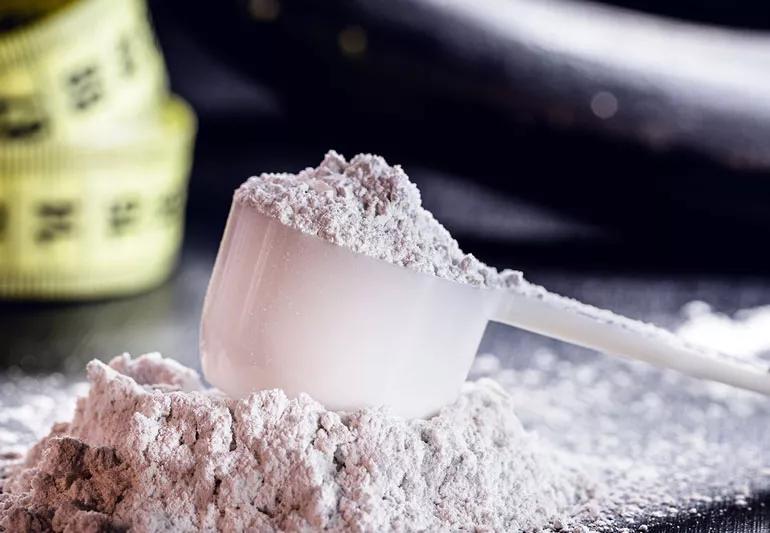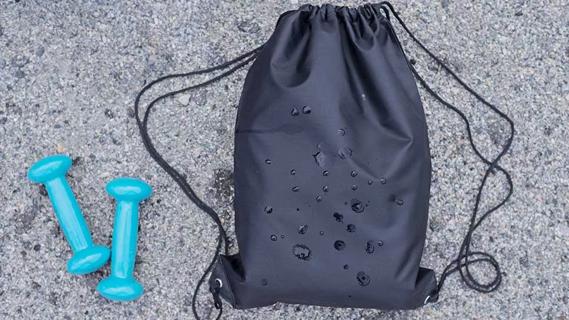The well-researched supplement can improve your fitness performance and help build muscle

If one of your goals this year is to hit the gym, you may recently have gone down a rabbit hole of information on how to make the most of your sweat sessions.
Advertisement
Cleveland Clinic is a non-profit academic medical center. Advertising on our site helps support our mission. We do not endorse non-Cleveland Clinic products or services. Policy
It can be overwhelming to read about what fitness tracker to use, what kind of protein shakes to drink and if you need to take any kind of supplements to enhance your workout performance.
One of those supplements, creatine, has become a social media sensation even though it’s been around for ages and has been commonly used by athletes and bodybuilders for years.
It’s been hyped on TikTok and other social media platforms because of claims that it can help you build muscle and give you that extra burst of energy to run a few more miles or do a couple more reps. Sounds great, right?
But is this all true?
Registered dietitian Kate Patton, RD, LD, breaks down how creatine works, if it’s safe to use and how to use it.
“Creatine is a molecule that’s made from amino acids,” explains Patton. “Amino acids are the building blocks of protein.”
So, what’s creatine for?
Creatine is used as energy for muscle contractions throughout your body. It aids your body in making more adenosine triphosphate, or ATP, a molecule that gives you energy and can help your exercise performance.
“Our body makes only so much ATP. And when we exercise, we tend to run out,” explains Patton. “If you have creatine stored in your system, it helps delay your body from losing ATP, which means you can work out for a longer period of time.”
Advertisement
Naturally produced in your liver and kidneys, about 95% of creatine is then stored in your skeletal muscles for use during physical activity and is known as phosphocreatine. A small amount of creatine is also found in your brain and heart.
Your body makes about 1 to 2 grams of creatine a day. And that typically comes from animal protein, so those who follow a traditional omnivorous diet should get enough creatine from their diet.
Foods that contain creatine include:
“If you want to get another one to 2 grams of creatine from your diet, you have to eat a lot of protein,” notes Patton. “So, that’s why people take the supplemental form of creatine.”
Creatine is one of the most researched supplements. And while it’s safe for most of us to take, Patton says adding the supplement to your routine makes the most sense for those who consistently do high-intensity interval training (HIIT) or have a strength-based workout routine (like someone training for a weightlifting competition).
“Also, people who don’t get enough animal protein from their diets, like vegetarians, can benefit from taking creatine,” she adds.
So, if you randomly hit the gym during the week, while safe, creatine might not be something you need to take.
“I would only use it if you’re truly trying to get some type of athletic performance benefits,” Patton continues. “Other than that, your average diet is going to provide enough if you eat animal protein in your diet.”
What does creatine do? The benefits of creatine include:
If used correctly, you shouldn’t experience any side effects of creatine. But Patton warns of a trend called “creatine loading,” where you take a higher dose for a week to “load” the muscle followed by a maintenance dose. Research shows this method isn’t necessary.
Advertisement
“Creatine loading can cause side effects like diarrhea, nausea and cramping,” she says.
You may also experience some weight gain with a creatine supplement.
“But it’s usually no more than two pounds, and that’s due to water retention in your muscles.”
Also, if you have chronic kidney disease or other kidney-related conditions, you should skip the supplement.
“Kidneys are responsible for filtering out the byproducts of protein breakdown, which includes creatine and nitrogen,” says Patton.
You may be wondering, How much creatine should I take? Patton says the recommended amount of creatine is 3 to 5 grams per day.
And it’s also key that you focus on when to take creatine. It works best if you take any creatine supplements before you work out. You want to have creatine stored in your body so it can be used to help fuel your physical activity.
“Creatine isn’t something you need to take 365 days a year,” says Patton. “You can take it just when you’re in those high-intensity training periods.”
So, how should you consume a creatine supplement? Available online or in some stores, creatine supplements tend to come in a powdered form, which you can mix into your water or drink of choice.
Remember that supplements aren’t regulated by the U.S. Food and Drug Administration (FDA). So, Patton recommends doing your homework and talking to a healthcare provider before starting any supplement.
Advertisement
“Look for a product that is tested by a third party,” advises Patton. “Look at the ingredients and make sure they don’t contain any banned substances.”
Products that have third-party testing from organizations like NSF International and Informed Choice typically have a stamp of certification on the label.
Overall, there’s plenty of research to support how creatine can improve your workout performance. So, should you add it to your routine?
“Using creatine makes the most sense for people who are truly training for a high-intensity sport or competition or want to gain lean muscle mass,” Patton reiterates. “So, for just your average person who might be a weekend warrior, then no. You can typically achieve your fitness goals from being active and eating a well-balanced diet.”
Advertisement
Learn more about our editorial process.
Advertisement

The exercise — which you’ve probably been doing since grade school — can be intimidating, but proper form can help

Exercise lowers risk for heart conditions, improves mental health and reduces visceral fat that can compromise your organs

Ask questions, get referrals and consider if someone is a good fit for you and your fitness goals

Expect a few bumps in the road, work out for the right reasons and give yourself some credit

Jump into the swing of things to improve your coordination, burn calories and get your heart rate going

Walking with a weighted backpack is a low-impact, full-body workout that’s growing in popularity

A super high heart rate means you’re burning more than fat

Meet your workout goals by accounting for frequency, intensity, time and type

Type 2 diabetes isn’t inevitable with these dietary changes

Applying a hot or cold compress can help with pain